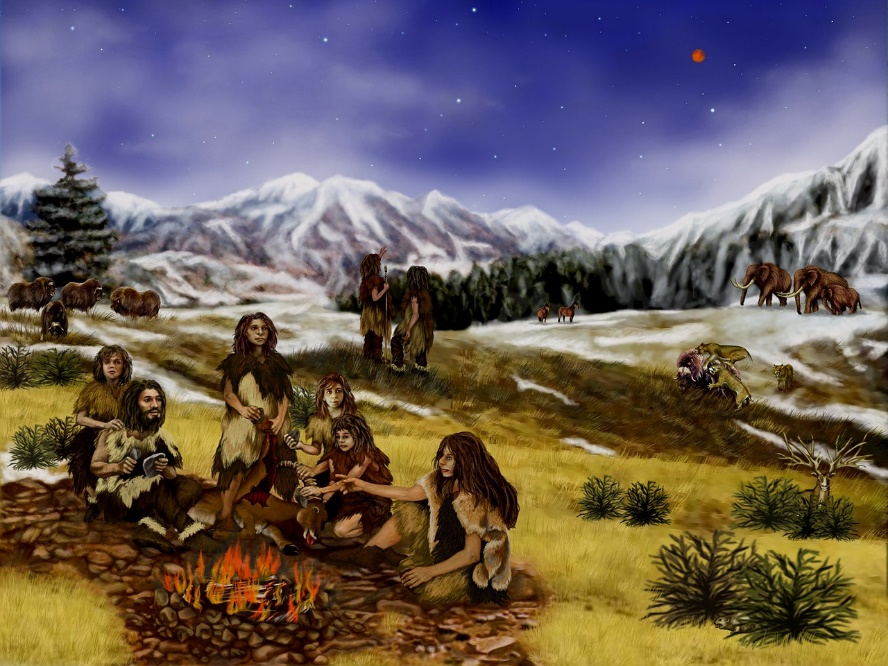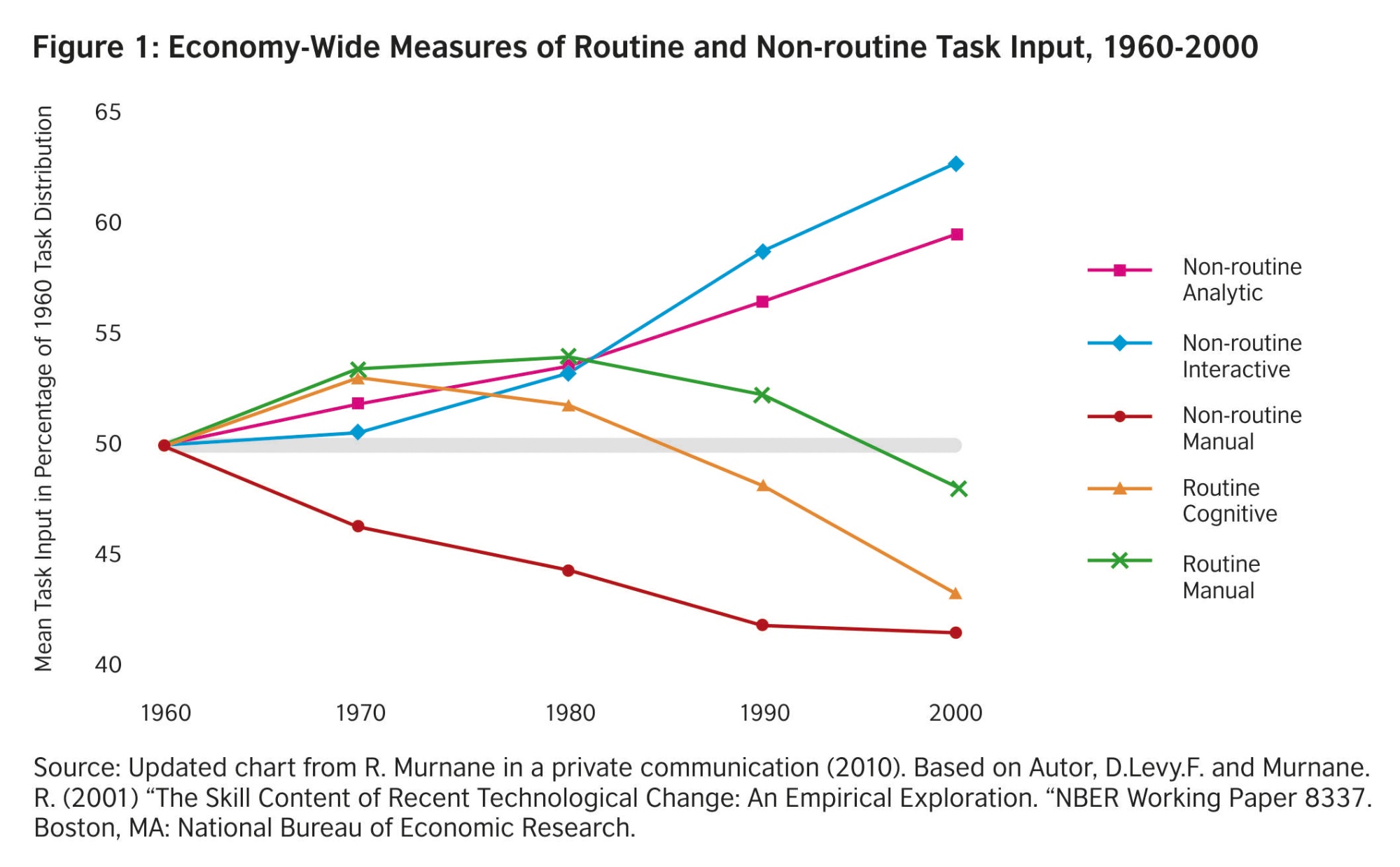- Home
- Various Articles - General
- Why Don't Monkeys Eat Bananas, or How to Align Education with Current Global Challenges?
Why Don't Monkeys Eat Bananas, or How to Align Education with Current Global Challenges?
Zuzana Labašová studied psychology at Univerzita Komenského and Hunter College CUNY, with continuing education courses completed at J. F. Kennedy University, California. She has been working for CEEV Živica for over 12 years, mostly focusing on teaching pupils and students, creating lesson plans on global education and training teachers and university professors in innovative methods of teaching. She is a validated British Council teacher of critical thinking. She focuses mostly on experiential teaching and where appropriate, incorporating art and psychology into teaching. Her psychology background gives her a theoretical understaning of the process, while standing in front of the classroom and training teachers for many years gave her experience and practice.
What are your first thoughts when it comes to the corona crisis of 2020? Change, fear, vulnerability, frustration... Our generation had never had the opportunity before to experience a global state of alarm such as the wave of corona pandemics that flooded the world for a short instance. As human beings it is fascinating to observe the irrationality and lack of critical thinking in human behaviour at a time of potential threat. As inhabitants of this planet it is interesting to watch the degree of interconnectedness that it has uncovered and the consequences of stepping out of the „bussiness as usual“ mode of functioning. As educators we have a unique opportunity to use this lesson and turn it into a teaching tool that helps broaden the scope of our perspective and the perspective of our pupils and students beyond one subject to a more complex and holistic approach of global education that takes into account the sophisticated nature of world as well as psyche. In more down to earth terms- we have the opportunity to step out of the box and teach about here and now in order to help students face, understand and ideally change for better themselves and the reality they live in. Every subject gives us a chance to tacke issues that inherently affect us- such as inequality, pollution, climate change, prejudice or overconsumption- be it calculus, natural science, history or foreign language. But in order to do that effectively, we first need to understand the mechanisms of how evolution has wired our thinking, feeling and being so that we pick the right tools to engage students and build their interest.
The way schools teach is not the way brains learn
Imagine yourself living fifty thousand years ago in an era we now call Midlle Stone Age. You are surrounded by wilderness and you can only trust and rely on your family and tribe. Life is full of dangers, the main goal is to survive, the essential strategy is to belong. The world around is unpredictable and there is very little you know about its mechanisms and laws. How do you make sense of life and the world that surrounds you? How do you know what to eat, how to behave and where to go? How do you learn about your ancestors, how do you know where you came from and what will happen when you die?

You are slower than most predators, you have mediocre eyesight or sense of smell but yet there are skills that help you survive and thrive- your brain adapted and is able to compensate for all these imperfections. It does so by three crucial strategies:
- Excellent visual memory- human visual memory is impressive and it is fundamental to cognition. That is the reason why memes go viral but everyone falls asleep when you turn on that powerpoint presentation with multiple abstracts of deep thoughts on every slide. Conspirators know that fake and photoshopped images are key to convincing their followers of their skewed reality and it is our task as teachers to help students discern between fact and fiction and to use visual cues wisely in our lessons to enhance the learning experience and raise interest of our learners.
- Storytelling was the first source of learning and has served humankind long before the invention of writing. Our ancestors used to hand down their wisdom around the fire- teaching history, spirituality as well as values through metaphors and stories. We still love stories of all sorts in all ages- be it fairy tales for little ones or gossip for adults. We are hard wired to absorb and remember messages easier and for a longer period of time when presented by storytelling, than when read or dryly dictated. Because stories are spiced with emotions and emotions are the glue, that connects the message with the audience. Using the powers of stories and storytelling in education is a way to have evolution at your service.
- Community- Imagine a room with five monkeys, a bunch of bananas hanging from the ceiling and a ladder leading right up to them. One monkey rushes up the ladder in a split second, reaches for the bananas but as soon as it grabs them, all the animals experience an unpleasant cold shower. The bananas remain in their place and the monkeys run for shelter. This same scenario repeats once again before the monkeys realize that the bananas are not worth it and leave them where they are. Then one monkey is replaced by a new one, who was not part of the original experiment. The newcomer immediately makes an effort to get to the sweet treat, but before it even reaches out, the remaining monkeys pull it off the ladder in order to avoid yet another unwanted cold bath. It tries again and is once again attacked by the remaining monkeys. Then yet another monkey is replaced and the same scenario is replayed- it reaches for the bananas but is attacked by all the other monkeys including the one, which has never experienced the freezing shower. The experimenters gradually replace all the monkeys until they reach the point when none of the five monkeys in the room have ever experienced the cold shower but none of them attempts to get the bananas because it fears the diaspproval of the others. Not touching the bananas became a social norm. Does it sound familiar? We are not certain whether this experiment actually happened the way it is described but it definitely reminds us of a pattern ingrained in our behaviour- we are formed by the approval and disapproval of our community. We have depended on community and survived ages by abiding to its rules. However much too often has the context changed drastically over time while many institutions- including schools- follow patterns and traditions solely because „that´s how it has always been done“. We are like those newcoming monkeys which have followed the unwritten law of not reaching for the bananas long after the experiment was over and the shower was dismantled. And we often attack the ones who look for new approaches without having a clear picture of the danger looming behind their action.
When we combine all these three elements of evolutionary heritage- images, stories and the importance of belonging- we suddenly understand why social media- Facebook, Instagram, Snapchat or Tic Toc are so popular- they address the very core of our evolutionary setup.
It would be unwise not to use them for the benefit of education. If you ask how, let me give you a simple example. Below you can see a daily schedule of a person.

Who is this person? Where does s/he live? What does s/he do for living? Is s/he rich or poor? What are her/his hobbies? In which country is s/he located? What would your daily schedule look like? Create one.
This is a simple exercise using images, stories and interconnectedness that can be used for many different subject combining narrative skills in mother tongue or foreign languages with topic such as benefits and downsides of globalization, poverty, or labour rights and conditions of workers in different countries.
Challenges of today
The school as we know it is rooted in a context, where information belong to the privileged, books are scarce and the main goal is to enlighten the illiterate masses in order to provide them with a brighter tomorrow. Therefore the gist of education is about acquiring information, and memorizing as many facts as possible in order close the gap between the deprived and those coming from saturated environments. For most people in the western world this is not the context we live in anymore. Most of us live in an urban jungle that is soaked with information- information is everywhere and most importantly each and every one one of us carries an entire encyclopedia in our pocket at all times in the form of a smartphone connected to the internet. No wonder the young generation does not see meaning in education. If education means gaining information then education loses its meaning in a context where information is everywhere, This however does not mean education became obsolete. On the contrary- we need it more than ever but we need it to reflect the needs of our time.
Occasionally I teach classes at elementary, high school or university level. I have a question that I have been asking for ten years now over and over again: „Why do you think many people in Africa are poor?“ Silence sets on the class and if I wait long enough, a few answers usually pop up: „Because there is only sand in Africa.“, „Because people there are lazy.“, „Because the climate in Africa is bad.“ The problem with this question is, that it does not belong to a specific subject. The „why“ questions force students to integrate information and look at the issue from multiple perspectives. There is geography involved, but also history, psychology and biology. Moreover there is no single right answer, rather it shows us the complexity of issues and makes us aware of the interconnections that make up our world. This is where we fail our students- we teach individual subjects as if life was split into moments of chemistry, history and foreign language without giving them the skills to integrate and connect the dots. We give them individual blocks of information but we do not teach them how to bulid a house of wisdom out of these blocks. And bricks become useless unless you have knowledge of contsruction.
How old is the captain?
Let me give you a mathematical problem that appeared at a fifth-grade exam paper at a chinese primary school:
„If a ship has 26 sheep and 10 goats on board, how old is the ship´s captain?“
Now this is not a typical, simple calculus problem that makes you add, multiply and divide and spit out the right answer. But likely, life usually does not give us such simple tasks to solve and move on. It rather expects us to analyze, combine, face frustration and improvise with creativity and boldness. In the same fashion, questions like these test students critical awareness, capacity to ask questions and their ability to think independently of mathematical problems. There is not enough questions like these in todays education. Our curret world does not need as many manual workers as before. Facing climate change and other global problems we need creative people who are resilient, curious and capable of navigating through uncertainty in order to find new ways of coping in new contexts. The skills that the world needs are well illustrated in the graph below:

Thus in order to have a succesful and effective education that reflects the needs of todays world we need to encourage students to learn, how to integrate individual pieces of information, critically assess them and create something new out of them.
If the purpose of school is to teach young people skills that will help them thrive in their furute lives, what exactly does that mean in the context of the world we inhabit? Facing climate change, I would suppose one of the key skill that crosscuts all subjects should be sustainability and environmental protection. Taking into consideration the dangers of populism and hoaxes, it is crucial to teach young people the metaskills of critical thinking, argumentation and inquiry. And because our lives take place in interaction with others a key component of our education should be teaching empathy in the broadest possible sense.
If the corona crisis was the mirror that reflects the current state of our world and what we need to focus on in education, what would it show us? It would show us that the lifestyle of the modern western person is not sustainable in the long run and is a great burden to the environment, because only when we are locked inside do the skies and waters clear and other species come back. It would also reflect the irrationality of a person in an unpredictable situation and the inability to evaluate the new context- fighting over toilet paper in supermarkets as if that would guarantee our survival and creating consiracies about birds that aren´t birds but drones that spy on us and the corona crisis was made up to lock us indoors because the pigeon-drones needed maintenance. And lastly the corona pandemic tested our empathy and willingness to help each other across the world- were we able to put down the weapons? Did we take into consideration the needs of the vulnerable? Or was it yet another opportunity to stregthen our stereotypes and prejudice? Did we as society, as a human family learn from this experience? Because there are more challenges to come and through education we can help the next generation cope with unpredictability in a more sustainable, effective and empathetic way.
Please check the Pilgrims courses at Pilgrims website.
Teaching with Humour
Graham Strouts, UKCognitive Challenge of ESL Textbooks: Science-fiction or Reality?
Lenka Cileková, SlovakiaWhy Don't Monkeys Eat Bananas, or How to Align Education with Current Global Challenges?
Zuzana Labašová, SlovakiaWhy Learners Find English Grammar Difficult
Gabriela Lojová, SlovakiaEducation as an Investment
Klaudia Bednárová, Slovakia